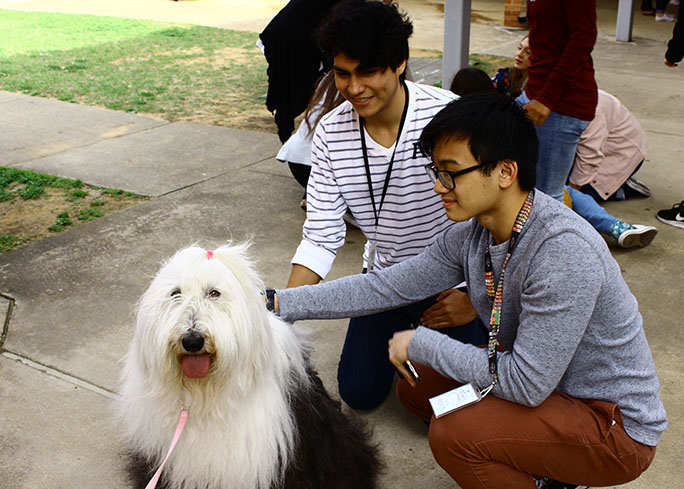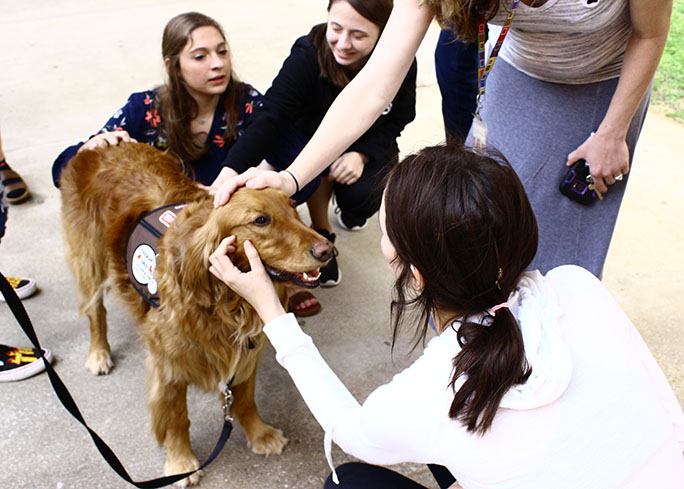Therapy dogs main attraction during anti-stress week
As the end of the school year approaches, most students are feeling a mounting level of stress, exhaustion and just plain boredom. I have yet to find a senior who hasn’t been bitten by the senioritis bug, juniors are scraping along in the last few weeks before they are the big dogs, and sophomores and freshman are cramming for STAAR tests and final exams. With so much stress coursing through the halls of the school, Student Council decided to organize an “anti-stress week” for students and faculty alike.
“Anti-stress week was something student council did because we know that STAAR and AP tests were coming up,” senior Jessica Olvera, student body president, said. “We felt like the student body would appreciate it, and I think they really did.”
The main event of anti-stress week was the therapy dogs that came to campus. Therapy dogs have been proven to lower anxiety levels and blood pressure, stimulate social interaction, and promote self esteem levels. However, the idea to bring therapy dogs to campus was encouraged by a much simpler claim.
“Everybody likes dogs,” Olvera said. “We figured we couldn’t go wrong by bringing dogs to campus.”
The dogs were only on campus for two hours, but Student Council has had many requests for the event to happen again.
“A lot of people said they wished that we would bring the dogs more,” Olvera said. “We felt like everyone was generally happier with the dogs there. You could see people smiling and coming together because of the dogs, and all around its something people said they want more of. That’s something Student Council will take into account next year.”
Student Council originally organized a sign-up sheet that split up time with the dogs into 10-minute increments. After an announcement that the dogs would take walk ins, however, a large number of the student body descended upon the pups. The dogs seemed more than happy to have the attention of so many students.
“[Daisy] obviously puts smiles on students’ faces and takes away their problems, especially during testing time,” Diane Hughes, dog handler, said. “I’ve had kids who would come see Daisy and then come back two hours later because they made an A on the test they were worried about.”
Hughes’ dog, Daisy, is a 5-year-old golden retriever who has been a therapy dog since she was 18-months-old. Hughes says that the relationship between them is completely symbiotic.
“We are definitely a team,” Hughes said. “She depends on me to watch her and take care of her. I depend on her to do her magic. I think she’s just God’s little miracle worker on earth.”
Despite her busy schedule, Olvera managed to spend some time with the dogs during Plus Period, witnessing first hand the impact the dogs had on students.
“They took my mind off everything that was going on at the time,” Olvera said. “I temporarily wasn’t worried about IB or all my college stuff.”

I am a senior, a third year newspaper staffer, second year editor-in-chief, and perpetually tired. I am an IB student, and have interned with the AISD...


